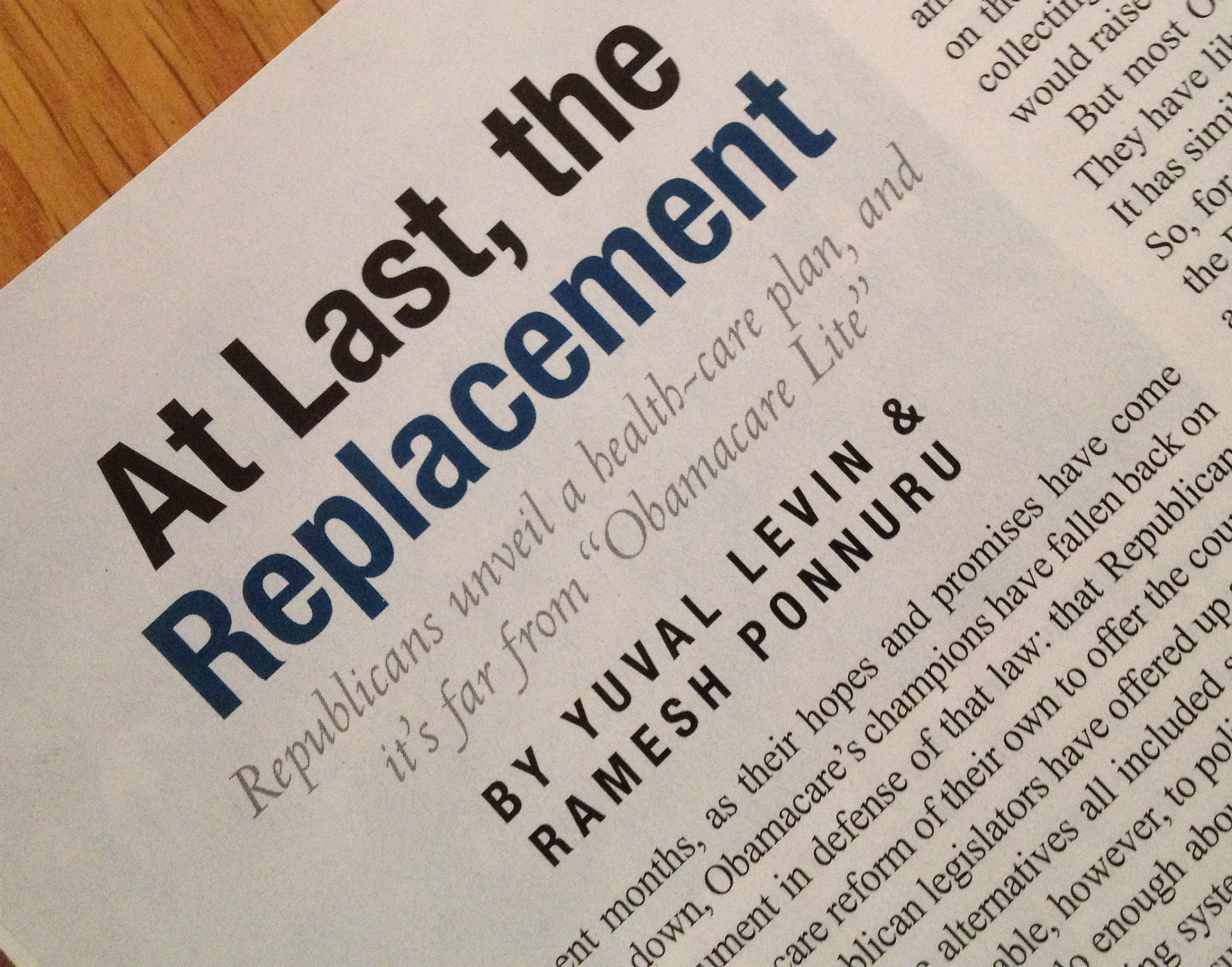 A couple of weeks after labeling a health care reform plan co-authored by U.S. Sen. Richard Burr “the best one to emerge from Congress yet,” National Review returns to that theme in its latest issue. Yuval Levin and Ramesh Ponnuru explain why they believe the plan represents “a huge step forward for Republican health-care policy.”
A couple of weeks after labeling a health care reform plan co-authored by U.S. Sen. Richard Burr “the best one to emerge from Congress yet,” National Review returns to that theme in its latest issue. Yuval Levin and Ramesh Ponnuru explain why they believe the plan represents “a huge step forward for Republican health-care policy.”
All Republican alternatives to Obamacare have been cheaper and less coercive than Obamacare, of course, but the senators’ proposal is the first one that is also competitive with Obamacare in the number of people it would cover and would not cause those who have employer-provided insurance to lose it.
Liberals can’t simply pretend that this proposal does not exist, so they have had to seek other lines of attack. Some, like the New York Times editorial board, have insisted it would cover fewer people than Obamacare. But the first assessment of the proposal’s costs and effects, conducted by the University of Minnesota’s modeling team for the Center for Health and Economy, suggested it would actually enable about 2 million more people to get coverage over the coming decade than Obamacare would, and at a much lower cost.
After answering several liberal critiques of the GOP plan, Levin and Ponnuru offer the following conclusion.
This different approach makes it possible for conservatives to offer the public a health-care proposal that would beat Obamacare on its own criteria of success: coverage expansion, lower premium costs, and lower government spending. And it could achieve that without the burdensome and prescriptive regulations of Obamacare, without its taxes on the uninsured and penalties for employers, without a Medicare board trying to micromanage the practice of medicine, and without doubling down on Medicaid program that denies the most vulnerable Americans ready access to care. In fact, it could achieve those goals precisely because it would avoid these misbegotten ideas and because it would embody and essentially different philosophical outlook — one that looks to competition rather than centralization and to consumer choice rather than expert management.
You can learn more about the plan from Burr himself during a March 31 John Locke Foundation Headliner luncheon.


